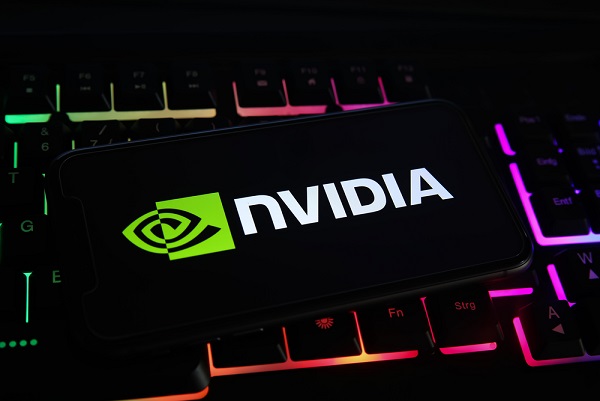Nvidia and AMD to hand over 15% of China chip revenues to US
- Gold tumbles as traders book profits ahead of key US inflation data
- Gold declines as traders brace for trade talks, US CPI inflation data
- Gold tumbles as traders book profits ahead of key US inflation data
- US CPI headline inflation set to rise 3.1% YoY in September
- BNB Price Rebounds as Traders React to CZ’s Pardon — But One Roadblock Remains
- WTI Oil steadies above $61.00 as concerns about oversupply ease

Nvidia and AMD struck a rare agreement with the U.S. government, agreeing to give 15% of their sales revenue from certain chips sold in China directly to Washington.
The deal covers Nvidia’s H20 artificial intelligence chip and AMD’s MI308 model. Both products are tailored for the Chinese market to comply with earlier export restrictions.
U.S. officials said the revenue-sharing agreement was a condition for obtaining export licences to sell the chips in China. These licences were granted last week after months of delay. Nvidia did not deny the deal’s existence, stating it “follows rules the U.S. government sets for our participation in worldwide markets.” AMD declined to comment.
Financial analysts estimate the arrangement could funnel billions into U.S. coffers. Bernstein Research projects Nvidia could sell around 1.5 million H20 units in China in 2025, generating about $23 billion in revenue. Under the 15% deal, more than $3 billion from those sales would go directly to the U.S. government. Officials have not yet said how they plan to use the funds.
Export-control specialists say the move is unprecedented. No U.S. company has previously agreed to hand over a share of its revenue as a condition for export approval. They compare it to earlier Trump administration tactics, in which companies were encouraged to make domestic investments or concessions to avoid tariffs.
Officials approve licences after high-level talks
The road to the agreement was complex. In April, the Trump administration said it would block H20 exports to China, citing concerns about AI technology transfer. The chip had already been designed to fit within Biden-era export limits on high-end AI processors.
In June, Nvidia CEO Jensen Huang met President Donald Trump at the White House. Within days, the administration reversed its decision to block the H20. Even then, the Bureau of Industry and Security (BIS), which enforces export controls, withheld licences for weeks.
These were issued only last week — after the 15% revenue deal was finalised. AMD’s MI308 chip received approval under the same terms.
Industry sources say the deal reflects Trump’s preference for transactional outcomes, blending trade, security, and economic policy.
Security concerns clash with corporate strategy
The arrangement has sparked sharp criticism from national security experts, and in a letter to Commerce Secretary Howard Lutnick, former deputy national security adviser Matt Pottinger and 19 other officials urged the government not to issue H20 licences. They warned that the chip is a “potent accelerator” for China’s AI development and could ultimately aid its military.
Some BIS officials reportedly shared these concerns, fearing the decision could weaken U.S. leadership in artificial intelligence. Nvidia rejected these claims, calling them “misguided” and insisting the H20 is unsuitable for military use. The company has argued that engaging in the Chinese market is crucial to maintaining U.S. technological competitiveness, warning against a repeat of the U.S. loss in the 5G race.
The deal also came as Washington and Beijing held delicate trade talks. China is pressing the U.S. to relax export controls on high-bandwidth memory chips, a key component for advanced AI processors. Trump hopes these negotiations will pave the way for a summit with Chinese President Xi Jinping later this year.
The revenue-sharing agreement now sits at the intersection of geopolitics, security, and corporate strategy. While it grants U.S. companies access to a lucrative market, it also opens a new chapter in how Washington uses export policy to restrict technology and generate revenue from it.
Read more
* The content presented above, whether from a third party or not, is considered as general advice only. This article should not be construed as containing investment advice, investment recommendations, an offer of or solicitation for any transactions in financial instruments.



